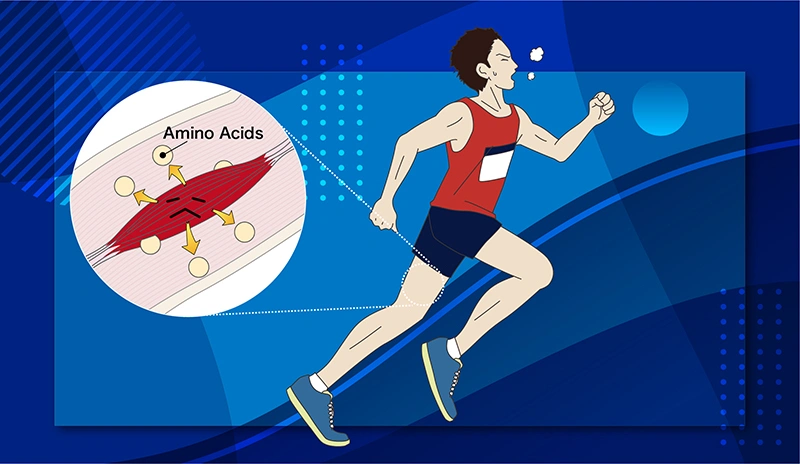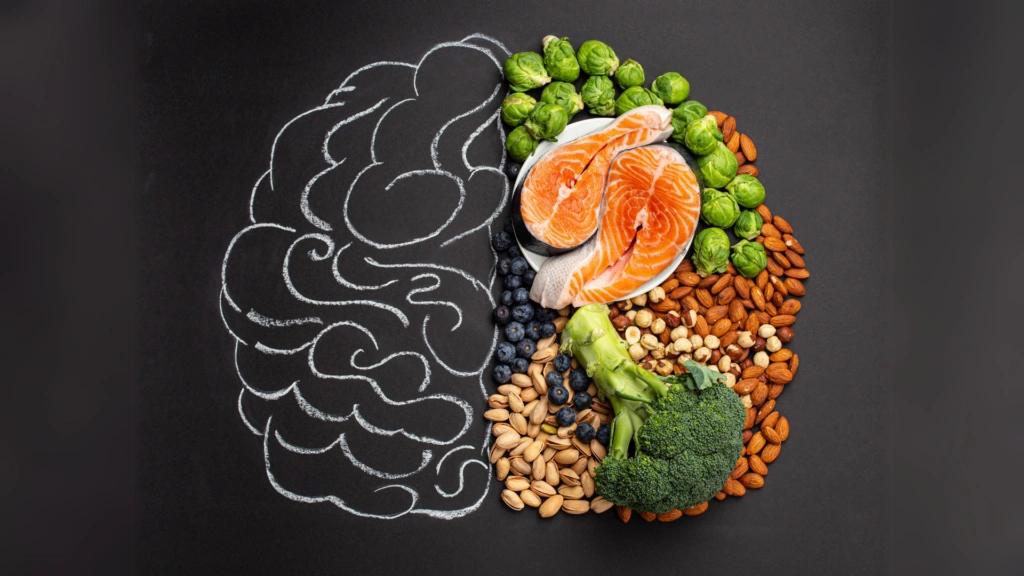In today’s fast-paced world, “Productivity and Performance: Nutrition Hacks for Busy Professionals” is more than a wellness buzz phrase—it’s a survival strategy. For working professionals juggling deadlines, multitasking, and cognitive workloads, fatigue, brain fog, and burnout often feel inevitable. Whether it’s low energy by midday or difficulty staying focused in meetings, these symptoms aren’t just annoyances—they’re red flags your body is running low on fuel, and your brain is short on nutrients.
While stress, poor sleep, and sedentary lifestyles play their roles, nutrition is often the hidden culprit—and your best ally. Smart dietary choices, even small ones, can profoundly affect mental clarity, mood, immunity, and endurance. This guide offers evidence-based, actionable strategies that professionals can implement without overhauling their entire routines.
Hydration: The Overlooked Energy Booster
If you often feel sluggish before lunch, hydration—or the lack of it—could be the cause. Even mild dehydration can impair mood, decrease concentration, and reduce cognitive performance. Studies show that inadequate hydration is linked to higher body mass index (BMI) and metabolic slowdowns, both of which can further compound fatigue and reduced productivity.¹
Simple habits to stay hydrated:
- Start the day with a glass of water.
- Keep a refillable bottle at your desk.
- Opt for herbal teas or infused water instead of sugary sodas or excessive coffee.
Even a 1–2% drop in body water can affect energy and focus. Staying hydrated is one of the most effortless yet effective productivity hacks.
Fiber: Fuel for Gut and Brain Health
 Dietary fiber isn’t just about digestion—it’s a critical player in your metabolic, immune, and even cognitive health. Despite this, most professionals consuming a Western diet fall short of the recommended daily fiber intake.²
Dietary fiber isn’t just about digestion—it’s a critical player in your metabolic, immune, and even cognitive health. Despite this, most professionals consuming a Western diet fall short of the recommended daily fiber intake.²
High-fiber foods slow digestion, stabilizing blood sugar levels and preventing the energy crashes that follow sugary snacks. Fiber also feeds your gut microbiome, which research now shows is directly linked to mood regulation and brain function.
Top fiber-rich foods to include:
- Chickpeas, lentils, oats
- Apples, avocados, and berries
- Chia seeds and almonds
- Brussels sprouts and leafy greens
Boosting fiber intake can stabilize your energy levels, sharpen mental performance, and support immune resilience—all vital for high-functioning professionals.
B-Vitamins: Essential Brain and Energy Nutrients
B-complex vitamins are a family of nutrients vital for converting food into energy, supporting nerve function, and producing neurotransmitters. Because these water-soluble vitamins are quickly depleted under stress and aren’t stored in large amounts, busy and stressed individuals are often at risk of deficiency.³
B-vitamin highlights:
- B1 (Thiamine): Brain energy metabolism (found in whole grains, pork)
- B2 (Riboflavin): Cellular energy production (dairy, eggs)
- B3 (Niacin): Supports NAD+ production, vital for brain repair⁴
- B6 and B12: Critical for mood, nerve function, and memory⁵⁻⁶
Vegetarians and vegans should pay particular attention to B12, as it is primarily found in animal products. Consider B-complex supplements or IV therapies for targeted support, especially if you experience digestive issues that might impair absorption.
Protein and Amino Acids: More Than Muscle Support
 Protein isn’t just for athletes—it’s essential for anyone under pressure. Amino acids, the building blocks of protein, help regulate mood, repair tissues, detoxify the body, and produce neurotransmitters like serotonin and dopamine.
Protein isn’t just for athletes—it’s essential for anyone under pressure. Amino acids, the building blocks of protein, help regulate mood, repair tissues, detoxify the body, and produce neurotransmitters like serotonin and dopamine.
Key amino acids for productivity:
- Glutamine: Supports gut health and immunity⁷
- Ornithine: Assists in ammonia detoxification and energy regeneration⁸
- Taurine: Improves cardiovascular and cognitive function⁹
- Tyrosine and tryptophan: Involved in dopamine and serotonin production
Lean protein sources—such as eggs, yogurt, poultry, tofu, and legumes—should be staples in your daily meals. On demanding days, targeted amino acid supplementation can support resilience and recovery.
Antioxidants: Your Defense Against Stress and Fatigue
Oxidative stress from poor diet, pollution, and mental strain can accelerate aging and impair cognitive function. Antioxidants neutralize these harmful free radicals, reducing inflammation and preserving cellular health.
Top antioxidant sources for professionals:
- Berries (blueberries, raspberries): Rich in polyphenols
- Nuts (walnuts, almonds): Contain vitamin E and selenium
- Dark chocolate and green tea: Natural brain-protective antioxidants
- Glutathione: The body’s master antioxidant¹⁰
Supplemental glutathione or antioxidant IV therapies may be helpful during periods of high stress, illness recovery, or travel. But for daily support, a diet full of colorful fruits and vegetables is your best defense.
Nitric Oxide (NO): The Circulation Enhancer
Nitric oxide plays a vital role in blood vessel dilation, improving blood flow to the brain and muscles. For professionals, this means better mental clarity, faster reaction time, and improved endurance.
Foods that boost NO production:
- Beetroot juice¹¹
- Arugula and spinach
- Watermelon (rich in citrulline)
- Foods high in arginine (turkey, peanuts, soybeans)¹²
Whether through diet or supplementation, enhancing NO levels can improve mental agility, cardiovascular health, and physical stamina—all essential for long workdays.
Cognitive Nutrition: Fuel for Focus and Mental Stamina
 Mental fatigue often feels harder to treat than physical exhaustion. Fortunately, nutrition can significantly affect memory, focus, and emotional regulation.
Mental fatigue often feels harder to treat than physical exhaustion. Fortunately, nutrition can significantly affect memory, focus, and emotional regulation.
Top cognitive-supporting nutrients:
- Niacin and tryptophan: Precursor to NAD+, vital for brain energy¹³
- Taurine: Enhances memory, mood, and brain cell protection⁹
- Omega-3 fatty acids (EPA and DHA): Anti-inflammatory brain fats
- Alpha-lipoic acid: Supports nerve health and blood flow¹⁴
- B6 and B12: Reduce brain inflammation and support nerve signaling⁶⁻¹⁷
Start early. Cognitive decline begins years before symptoms appear. Strategic nutrition now can protect long-term brain health and maintain sharpness into the later stages of your career.
Immune Resilience: The Foundation of Consistent Performance
Frequent sick days can crush momentum and productivity. Strengthening your immune system with specific nutrients can reduce downtime and enhance daily performance.
Essential immune boosters:
- Vitamin C: Enhances barrier function and supports immune cell activity¹⁸
- Zinc: Modulates immune response and fights inflammation²¹
- Garlic, ginger, and turmeric: Natural anti-inflammatory herbs
- Mushrooms (Reishi, Shiitake): Adaptogens for immune regulation
Both vitamin C and zinc are especially effective during cold and flu seasons. In higher stress periods, IV therapy with these nutrients can help professionals bounce back faster and stay resilient through demanding schedules.
Fast Hacks for Busy Workdays
Even with the best intentions, tight schedules can make healthy eating a challenge. Here are a few nutrition hacks that take little effort but offer big returns:
- Meal prep Sundays: Prepare high-fiber salads, lean proteins, and energy-boosting snacks.
- Snack smart: Keep almonds, dark chocolate, and protein bars in your bag or desk.
- Hydration reminders: Use phone alerts or apps to prompt water intake.
- Supplement wisely: Consider B-complex, omega-3, and antioxidant support.
Final Thoughts: Small Changes, Big Impact
Productivity isn’t about doing more—it’s about doing better. That begins with taking care of your body and brain. Nutrition is one of the most powerful yet underused tools professionals have to improve concentration, endurance, and resilience.
By staying hydrated, incorporating fiber-rich and antioxidant-dense foods, boosting your intake of B-vitamins, amino acids, and cognitive nutrients, you can transform how you feel at work and how well you perform.
Start with one change—maybe more water or a protein-packed lunch—and build from there. Small shifts lead to lasting results.
References
- Chang T, Ravi N, et al. Inadequate Hydration, BMI, and Obesity Among US Adults. Ann Fam Med. 2016;14(4):320–324.
- Lattimer JM, Haub MD. Effects of Dietary Fiber on Metabolic Health. Nutrients. 2010;2(12):1266–1289.
- BetterHealth Channel. Vitamin B. http://www.betterhealth.vic.gov.au/health/healthyliving/vitamin-b
- Zhao Y, et al. NAD+ and Cognitive Function. J Neuroinflammation. 2021;18(1):207.
- Altun I, Kurutaş EB. B12 after Peripheral Nerve Injury. Neural Regen Res. 2016;11(5):842.
- Lewis JE, et al. B Vitamin Complex and Mental Health. ISRN Psychiatry. 2013:621453.
- Mount Sinai. Glutamine. https://www.mountsinai.org/health-library/supplement/glutamine
- Ndraha S, Simadibrata M. L-ornithine and Hepatic Encephalopathy. Acta Med Indones. 2010;42(3):158-161.
- Schaffer S, Kim HW. Taurine as Therapy. Biomol Ther. 2018;26(3):225–241.
- Marí M, et al. Mitochondrial Glutathione. Antioxid Redox Signal. 2009;11(11):2685–2700.
- Domínguez R, et al. Beetroot Juice and Endurance. Nutrients. 2017;9(1):43.
- Kiani AK, et al. NO Synthesis and Supplements. J Prev Med Hyg. 2022;63:E239–E245.
- Zhao Y, et al. NAD+ in Brain Function. J Neuroinflammation. 2021;18(1):207.
- Mount Sinai. Alpha-Lipoic Acid. https://www.mountsinai.org/health-library/supplement/alpha-lipoic-acid
- Kennedy DO. B Vitamins and Brain Function. Nutrients. 2016;8(2):68.
- Carr AC, Maggini S. Vitamin C and Immune Function. Nutrients. 2017;9(11):1211.
- Hemilä H, Chalker E. Vitamin C and the Common Cold. Cochrane Database. 2013.
- Mussa A, et al. Vitamin C in Cancer Therapy. Pharmaceuticals. 2022;15(6):711.
- Lykkesfeldt J, Tveden-Nyborg P. Pharmacokinetics of Vitamin C. Nutrients. 2019;11(10):2412.
- Maares M, Haase H. Zinc and Immunity. Arch Biochem Biophys. 2016;611:58–65.
- Pal A, et al. Zinc and COVID-19. Biol Trace Elem Res. 2021;199(8):2882–2892.




